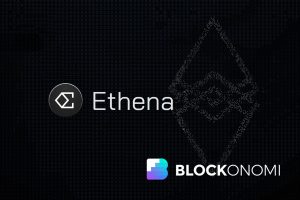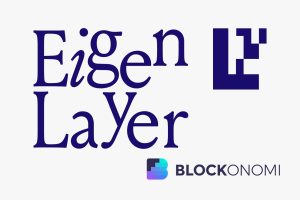Ethereum ERC-4337 ‘smart accounts’ launch at WalletCon: Account abstraction is here

[ad_1]

Smart accounts, enabled by the launch of the new ERC-4337 standard, are now available on Ethereum and are expected to help mainstream adoption by finally making crypto user friendly.
Ethereum Foundation security researcher Yoav Weiss will make the surprise announcement at WalletCon in Denver today that the core contracts for ERC-4337 — known by blockchain developers as “account abstraction” — have passed an audit by Open Zeppelin and will be made available on every Ethereum Virtual Machine (EVM) compatible network including Polygon, Optimism, Arbitrum, BNB Smart Chain, Avalanche and Gnosis Chain.
New users will no longer need to learn about complicated seed phrases or the technical process of setting up a wallet to onboard into the decentralized world of crypto, Weiss told Cointelegraph.
“The next billion users are not going to write 12 words on a piece of paper. Normal people don’t do that,” he said. “We need to give them better usability, they shouldn’t need to think about cryptographic keys.”
“EIP-4337 is going to take a year or whatever” – @sashaaldrick of @gelatonetwork
You’re in for a big surprise
— John Rising (@johnrising_) February 25, 2023
Account abstraction also enables the unique cryptographic keys used for cryptocurrency to be stored on standard smartphone security modules, upgrading them to de facto hardware wallets. However the screen remains a security issue compared with traditional hardware wallets and gas costs could be prohibitive on mainnet initially — although other EVM chains and Layer 2s have low enough fees to make it viable.
It also enables the use of two-factor authentication; signing transactions on your phone using a fingerprint or face-scan; the setting of monthly spending limits on an account; and the use of session keys to play blockchain games without constantly having to approve transactions.
Users who lose their phone or device can use time-locked social recovery of their account via a group of trusted friends or even a commercial service. Weiss said:
“It gives you the same features a bank would without having to trust a bank.”
The standard has been in development for two years with the team funded via grants from the Ethereum Foundation. While similar functionality is available on smart contract wallets from Argent and Gnosis, these solutions require centralized components called relays to pay gas fees whereas ERC-4337 decentralizes the entire system.
Weiss was one of the lead authors of Etherum Improvement Proposal (EIP) 4337 alongside Ethereum co-founder Vitalik Buterin and five others. He said Buterin had first posted about the concept nine years ago “before Ethereum even launched, it has taken us this long to get here.”
There have been numerous proposals to enable account abstraction prior to this but all required a difficult hard fork of Ethereum, and took a back seat to more pressing upgrades like the Merge. ERC-4337 is an alternate approach that makes use of decentralized infrastructure called “bundlers.”
Your guide to why ‘smart accounts’ are the hottest thing in crypto right now and will help bring about mainstream adoption.
They are the key upgrade enabled by Ethereum’s new ‘account abstraction’ ERC-4337 standard that’s being launched today. https://t.co/vFoKhdv4Cl
— Cointelegraph Magazine (@CointelegraphZN) March 1, 2023
In very simple terms, the process works like this: a smart wallet signs a “user operation” which gets fired to a special mempool, which is basically just an organized queue of transactions (albeit a different queue than Ethereum’s normal mempool).
Bundlers are like miners or validators, taking user operations from the mempool and delivering the desired result back to the wallet. The bundlers also pay for the gas (transaction fee) required and are compensated by the user’s contract account or by a third party known as a “paymaster.” This could be a decentralized application (DApp) or it could be a wallet provider.
The first production grade bundler to be deployed on mainnet is from wallet and infrastructure provider Stackup, but more will be available soon. “It’s permissionless; anyone can run a bundler,” says Weiss. “It’s not censorable.”
Smart accounts, or account abstraction, is shaping up as a key theme for crypto in 2023. The technology has already been incorporated natively into zk-Rollup layer 2 solutions from StarkWare and zkSync and Visa designed an automated crypto bill payment system that makes use of it.
Related: ‘Account abstraction’ supercharges Ethereum wallets: Dummies guide
John Rising, the co-founder of Stackup, tweeted this week that an added advantage of account abstraction is that projects can use plain and easily understood language to onboard new users rather than arcane technical terms.
“Because the contract handles the esoteric blockchain stuff, you don’t have to use words like ‘gas’ or ‘nonce’ to accurately describe what’s happening. This is a huge win for crypto adoption and security.”
[ad_2]
Source link










